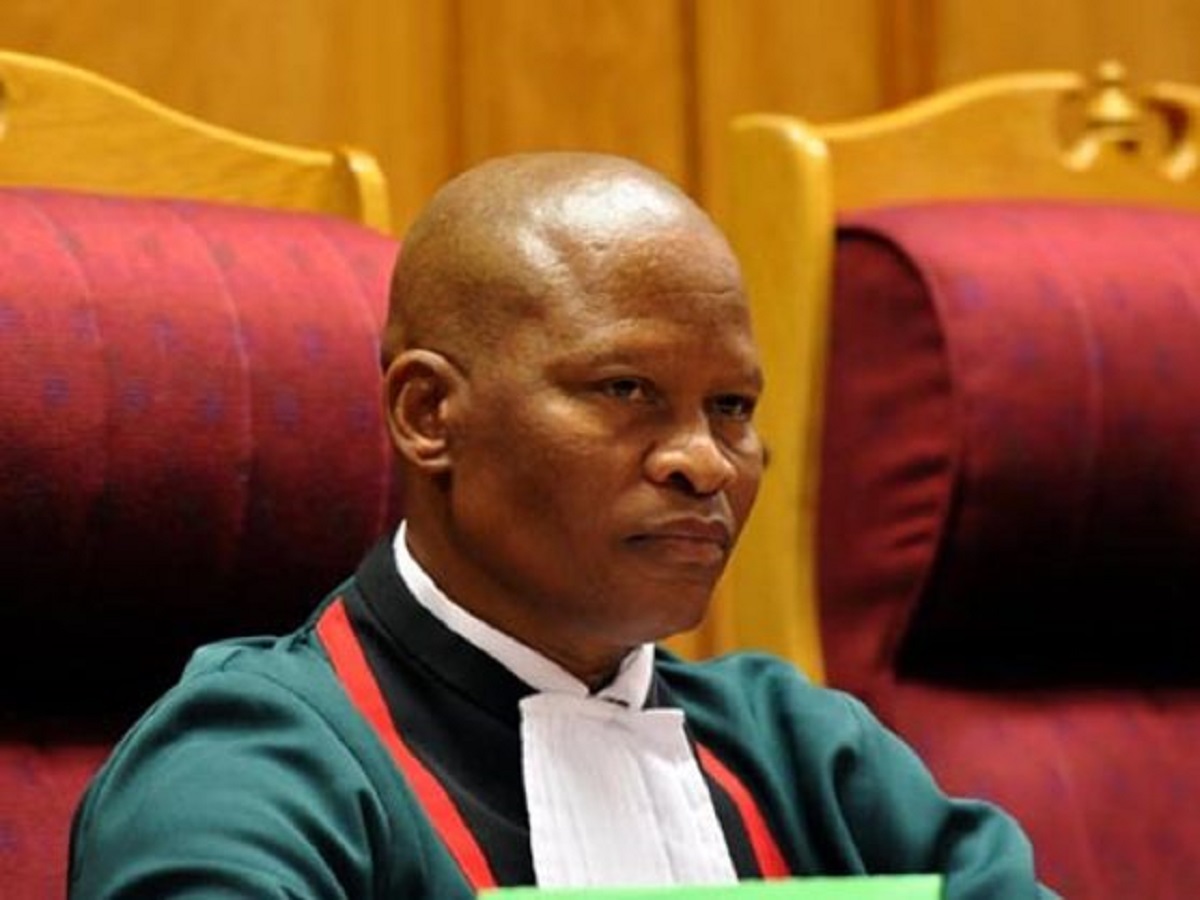
Mogoeng is now not expected to be sitting as chief justice when the ConCourt hands down judgment in the Zondo commission’s contempt case against Zuma.
Chief Justice Mogoeng Mogoeng was at the centre of a string of controversies in recent months and this week continued raising eyebrows with the news he was taking a lengthy leave of absence.
Judges get 3½ months’ leave for every four years’ service and in a statement on Thursday, the office of the chief justice announced Mogoeng had taken his “long leave” – as the judiciary calls it – with effect from 1 May.
With Deputy Chief Justice Raymond Zondo’s hands full at the Commission of Inquiry into State Capture, Judge Sisi Khampepe has been named acting chief justice.
ALSO READ: Mogoeng takes long leave before JCC’s Israel appeal decision
But with the courts going into the third recess for the year in September this looks, in effect, to be his bowing out.
The announcement came hot on the heels of the news that Mogoeng was appealing the Judicial Conduct Committee’s (JCC) findings against him over comments he made about Israel last year and with a ruling from the Constitutional Court, which the chief justice heads, on the Commission of Inquiry into State Capture’s attempt to have former president Jacob Zuma held in contempt, expected any day now.
His office has offered a less controversial explanation for the timing, though. It said Mogoeng had been due to take his long leave since July 2018, but had been too busy.
However, judges’ leave is not cumulative and Mogoeng had to take his or risk forfeiting it.
“It is a normal practice in the judiciary for judges to take their leave whenever it is due. The chief justice’s long leave was due and he has duly taken it,” it read.
Mogoeng is now not expected to be sitting as chief justice when the Constitutional Court hands down its judgment in the commission’s contempt case against Zuma.
He was, however, not on the bench that heard the case originally, so would not have been involved in adjudicating it.
But there are also a number of other important cases on the court’s roll over the next few months, which Mogoeng now won’t be presiding over.
ALSO READ: Chief justice Mogoeng nearing end of his term. Who will replace him?
Another case involving Zuma, in which he is fighting a personal costs order made against him in his attempt to challenge the establishment of the state capture commission, is due to come before the Constitutional Court justices, as are cases involving the constitutionality of the University of South Africa’s 2016 decision to do away with Afrikaans as a language of instruction and a challenge to the broad-based black economic empowerment rules for government tenderers.
Mogoeng’s appeal before the JCC is due to be considered next month. In March, the JCC found Mogoeng had breached the code of judicial conduct by becoming involved in political controversy at a webinar hosted by The Jerusalem Post last year, as well as at a subsequent prayer meeting where he refused to apologise for his comments.
It gave him 10 days to issue an unconditional apology. During the webinar, he was asked to comment on the diplomatic relationship between SA and Israel and whether he agreed with the former’s foreign policy in relation to the other.
His remarks prompted complaints from three local organisations: Africa 4 Palestine, SA Boycott Disinvestments and Sanctions Coalition and Women’s Cultural Group.
bernadettew@citizen.co.za

